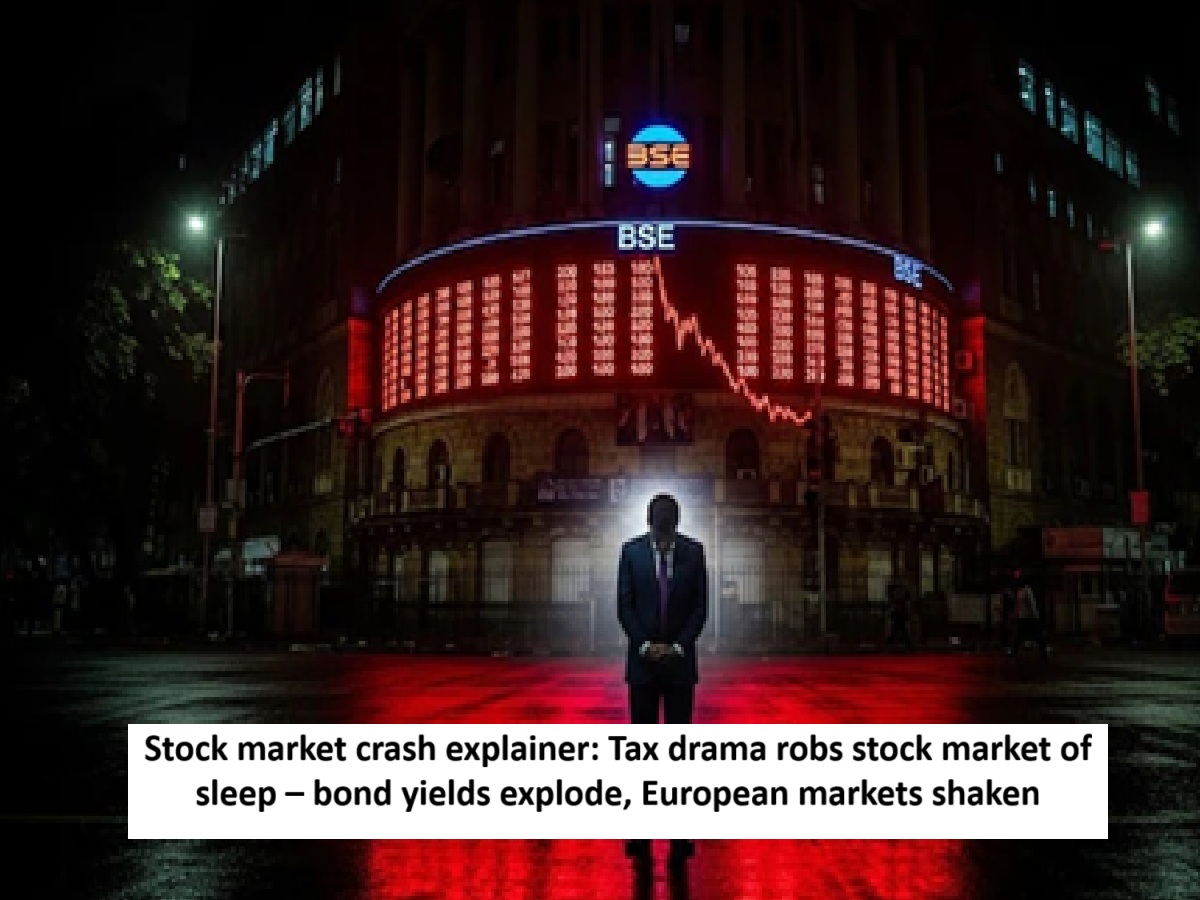
News Topical, Digital Desk : Things are heating up in the UK ahead of the Autumn Budget. British bond yields suddenly jumped as news emerged that a planned income tax hike had been withdrawn, while banking stocks in the FTSE 100 plummeted. Investors now believe the government's £30 billion budget gap will be filled by smaller tax changes. This potential U-turn by Finance Minister Rachel Reeves has created new uncertainty in the market.
The UK economy and financial markets are once again in turmoil. According to reports, Finance Minister Rachel Reeves is backtracking on plans to raise income tax rates. As soon as this news broke, the market's initial reaction was swift: UK government bond (gilt) yields suddenly surged, and stocks began selling.
Why investors panicked: On Friday morning, the 10-year gilt yield jumped nearly 12 basis points to 4.498%. Remember, a rise in yields means a fall in bond prices, meaning investors sold bonds. This simply means the market perceives a major flaw in the government's budget.
- A tax U-turn will further strain the fiscal situation
- The government will have to borrow more, so investors are demanding higher returns -
The stock market also crashed - The FTSE 100 fell 1%
- London's FTSE 100 index fell nearly 2%.
Banking stocks were hit the hardest:
Lloyds,
NatWest, and
Barclays, all three falling by more than 2.8%. Banking stocks fell because the government's fiscal risks could increase. Borrowing costs could rise. Uncertainty also slows credit demand. Rachel Reeves' U-turn—further market turmoil. Until last week, Finance Minister Reeves appeared to be preparing the ground for a 2p increase in income tax. This move would have been against the Labour Party's election promise, but was considered necessary to fill the budget's massive £30 billion budget gap. Now, news has emerged that income tax will not be increased—the budget shortfall will be filled through smaller tax increases. This has raised two major concerns for investors: the government's fiscal intentions have become unclear and the risk of fiscal pressure has increased. There has been no official statement from the Treasury on this issue. Splits and political turmoil within the Labour Party. Reports suggest that the proposed tax increases are dividing the Labour Party internally. Many MPs were against the increase in income tax. PM Keir Starmer's rating is already falling, in such a situation instability on the economic front is increasing the problems of the party. An economic U-turn taken amidst political pressure gives wrong signals to the market - that is why the reaction was so sharp. Investors' eyes are now on the budget. The biggest focus of the market is now on the budget - how will the budgetary gap of 30 billion pounds be filled? Will there be small changes in VAT, capital gains tax or corporate tax? Will the government be more dependent on debt? The next month can prove to be decisive for the UK market.
--Advertisement--

 Share
Share



